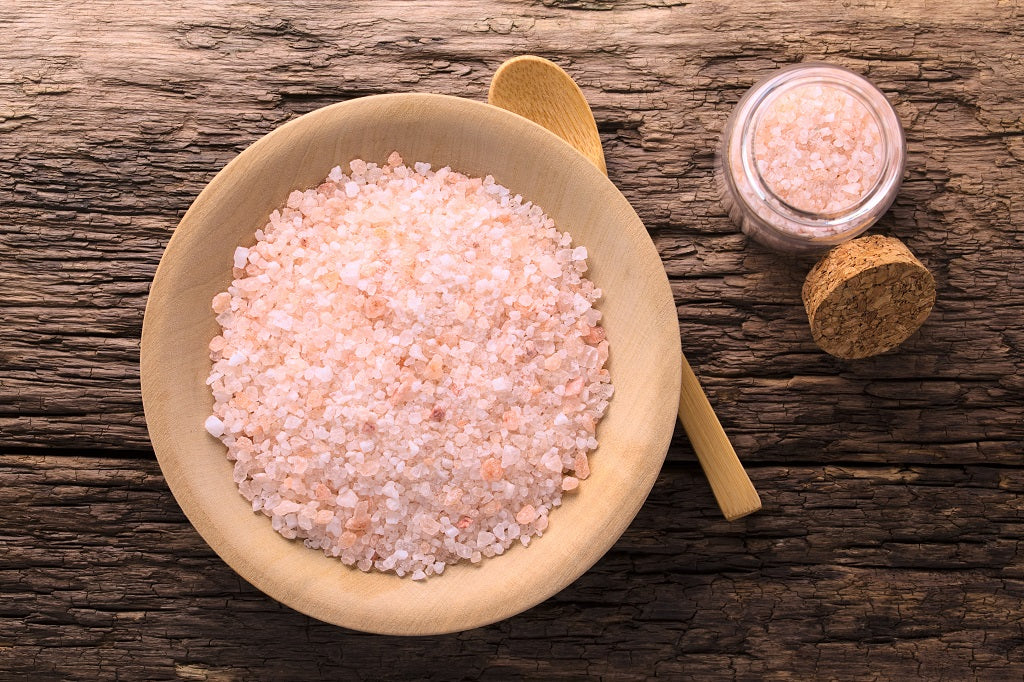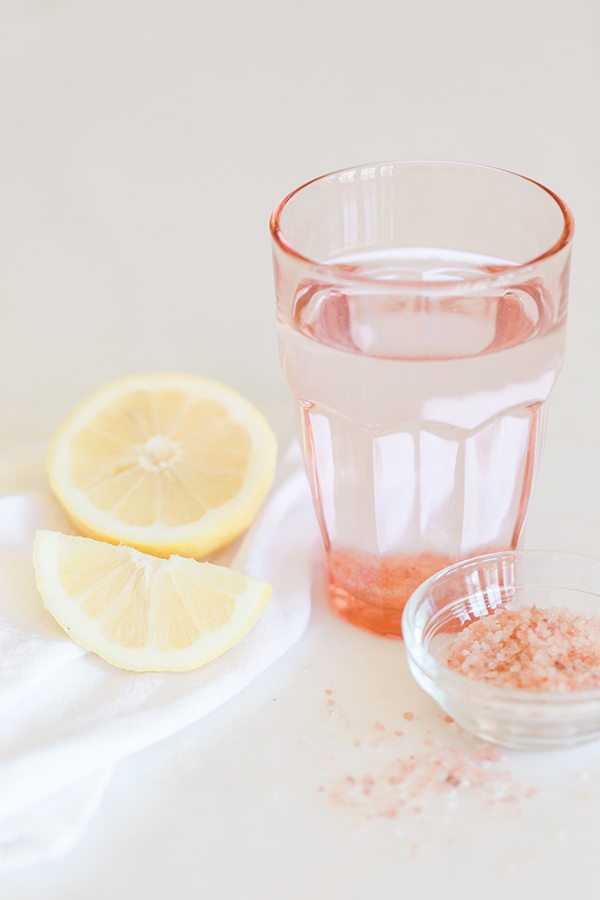Have you heard about the salt water cleanse for weight loss? Can something as simple as drinking a mixture of warm water and salt really help you shed those extra pounds? Many people are talking about the benefits of this cleanse, claiming it reduces bloating, supports digestion, and helps with weight loss. But does it actually work, or is it just another fleeting trend? In this article, we’ll explore the salt water cleanse, how it works, and whether it’s a safe and effective weight loss strategy.

What is a Salt Water Cleanse?
A salt water cleanse, also known as a salt water flush, involves drinking a mixture of water and non-iodized salt, typically on an empty stomach. This method is believed to cleanse the colon, improve digestion, and reduce bloating. Some people claim it can lead to rapid weight loss, mainly by flushing out excess water weight from the body.
But is there scientific evidence supporting these claims? Can the salt water cleanse truly help with weight loss, or is it just a temporary fix? Let’s break it down and see what the experts say.
How Does a Salt Water Cleanse Work for Weight Loss?
1. Hydration and Electrolyte Balance
The salt water cleanse primarily works by helping your body maintain proper hydration and electrolyte balance. Salt contains essential minerals like sodium and potassium, which are crucial for regulating fluid balance in the body. When consumed in small, controlled amounts, salt can improve the absorption of water, ensuring that your body is adequately hydrated.
Proper hydration is vital for healthy metabolism and digestion. It also prevents your body from retaining excess water, which can contribute to bloating and a feeling of heaviness. By reducing water retention, a salt water cleanse may help you feel lighter and slimmer, although this is not actual fat loss.
2. Cleansing the Digestive System
Another key benefit of a salt water cleanse is its ability to stimulate bowel movements. The salt acts as a mild laxative, promoting the clearing of the digestive system and colon. This process may help relieve constipation, improve digestion, and reduce bloating—common issues that can make you feel uncomfortable or sluggish.
When your digestive system is functioning optimally, your body can better absorb nutrients and process waste. This can contribute to improved overall health and may support your weight loss efforts.
3. Temporary Water Weight Loss
One of the most common claims about the salt water cleanse is that it can lead to rapid weight loss. However, the weight lost from a salt water cleanse is typically due to the loss of water, not fat. This means that any weight you shed after a cleanse is likely to be temporary, as your body will quickly regain the lost fluids once you rehydrate.
While this may result in a slimmer appearance in the short term, it’s important to understand that the salt water cleanse is not a long-term solution for fat loss.
How to Do a Salt Water Cleanse for Weight Loss
If you’re curious about trying the salt water cleanse, here’s a simple recipe to get you started. Make sure to use non-iodized salt, such as Himalayan pink salt or sea salt, to avoid adding chemicals or unnecessary additives.
Salt Water Cleanse Recipe:
-
1 quart (4 cups) of warm water
-
2 teaspoons of non-iodized salt (such as Himalayan pink salt or sea salt)
Optional:
-
A squeeze of fresh lemon juice (for detoxification and added flavor)
Instructions:
-
Heat 4 cups of water until it is warm but not too hot to drink.
-
Add 2 teaspoons of non-iodized salt to the warm water and stir until it’s fully dissolved.
-
If desired, add a squeeze of lemon juice for a refreshing taste and detoxifying benefits.
-
Drink the entire quart of salt water on an empty stomach, preferably first thing in the morning.
-
Wait for 30 minutes to an hour for the bowel movements to begin. You should feel relief from bloating and discomfort after the cleanse.
This is a simple and effective way to give your digestive system a reset. However, be mindful of your body’s response—if you feel any discomfort or side effects, it’s important to stop the cleanse and consult a healthcare provider.

Other Natural Weight Loss Methods
While the salt water cleanse can help with temporary weight loss, it’s not a sustainable method for long-term fat loss. Here are some other natural weight loss strategies to consider:
1. Apple Cider Vinegar (ACV) for Weight Loss
Apple cider vinegar has gained popularity as a natural weight loss aid. It is believed to help regulate blood sugar, reduce appetite, and improve digestion. Drinking 1-2 tablespoons of ACV mixed with water before meals may help curb cravings and promote healthy weight loss.
2. Fruits for Weight Loss
Fruits are naturally low in calories, high in fiber, and packed with essential vitamins and minerals. Many fruits, such as berries, apples, and citrus fruits, are especially beneficial for weight loss. They are rich in antioxidants, help reduce inflammation, and promote digestion. Incorporating more fruits into your diet can support weight loss and overall health.
3. Vegetarian Diet for Weight Loss
A vegetarian diet is rich in plant-based foods like vegetables, fruits, whole grains, and legumes. These foods are naturally lower in calories and fat while providing high amounts of fiber and essential nutrients. Studies show that individuals who follow a vegetarian diet tend to have a lower body mass index (BMI) and are more successful at maintaining a healthy weight.
Frequently Asked Questions (FAQs)
1. Does a salt water cleanse really help with weight loss? While the salt water cleanse can help with temporary weight loss by reducing water retention, it doesn’t directly result in fat loss. The weight lost is primarily due to water weight, which is regained once you rehydrate.
2. How often can I do a salt water cleanse? It’s recommended to do a salt water cleanse occasionally, perhaps once a week or when you feel particularly bloated. Overuse of this method can lead to dehydration and electrolyte imbalances, so moderation is key.
3. Can I drink salt water every day for weight loss? Drinking salt water every day is not advisable. While it may provide short-term benefits, frequent use can disrupt your body’s electrolyte balance and cause dehydration. For sustainable weight loss, it’s best to rely on a balanced diet and regular exercise.
4. Is the salt water cleanse safe? The salt water cleanse is generally safe for most people when done occasionally and in moderation. However, if you have health conditions like high blood pressure or kidney problems, it’s important to consult with a healthcare provider before trying this cleanse.
5. What happens if I drink too much salt water? Drinking too much salt water can lead to dehydration, electrolyte imbalances, and even more serious health issues like high blood pressure or kidney damage. Always follow the recommended recipe and consult a healthcare provider if you have any concerns.
6. What should I do after a salt water cleanse? After completing a salt water cleanse, it’s important to rehydrate properly by drinking plenty of water. You can also eat light, healthy foods to support digestion and replenish your body with essential nutrients.
Is the Salt Water Cleanse Right for You?
The salt water cleanse can offer temporary relief from bloating and water retention, making you feel lighter and more comfortable. However, it’s important to understand that it’s not a long-term solution for fat loss. For sustainable weight loss, focus on a balanced diet, regular physical activity, and healthy lifestyle choices.
If you’re looking for a quick detox or a way to reset your digestive system, the salt water cleanse may be a useful tool. Just remember, long-term weight loss requires consistent, healthy habits.